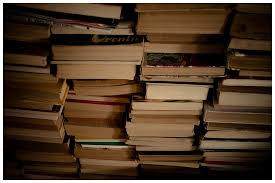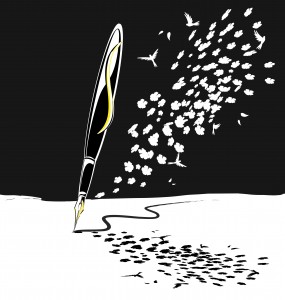 With the plethora of billionaire stories that have burst on to the scene since the 50SoG phenomena and the second film fast approaching, I found myself wondering the other day while I was doing the ironing just what it is about billionaires that we find so appealing.
With the plethora of billionaire stories that have burst on to the scene since the 50SoG phenomena and the second film fast approaching, I found myself wondering the other day while I was doing the ironing just what it is about billionaires that we find so appealing.
OK, I suppose that sounds like a stupid question. People are always curious about how the other half (or in this case less than 1%) live. That’s only natural. And who hasn’t fantasized about how their lives would be different if they won the lottery or a long lost relative died and left them with a fortune? So here are just a few of the reasons I think billionaire romances appeal to readers so much.
THE FREEDOM
It they can buy it, they can have it. Billionaires don’t have the financial constraints the rest of us constantly live with. Helicopters, jets, palatial mansions in south France, yachts the size of the QE2 are all just an afternoon’s shopping spree. There’s something very appealing about the freedom that buys, which leads me to my next reason.
THE RULES DON’T APPLY
If money is no issue, then many of the rules that apply to most of us are no longer relevant. While money may not be able to buy love, it can certainly buy sexual satisfaction in more than fifty shades and way more colours than gray. There’s something very edgy and exciting about the idea of buying sexual control over another person. It’s a Dom/sub relationship based on wealth, and we live in an age when money is power and money is control. It’s not surprising that money is also very sexy. Neither is it surprising that many of our fantasies involve ‘being bought’ in some way.
LIVING THE LIFE
The typical billionaire story involves a billionaire loving or at least lusting for someone who is very average. And while we read that story, we fantasise ourselves right into that role. We become the character who is wined and dined, whisked away in the private jet and shopped for by a very exclusive personal shopper. In essence, we get one helluva makeover, readying us to walk in the rarified air of the billionaire’s world. It’s the luxury and adventure of our fantasies along with the hot nasty steamy sex of … er … well … our fantasies.
THE LOOK
In billionaire novels the polished, airbrushed look of wealth is associated with the look or our dream guy or girl. We want our billionaires to conform to our personal fantasies of what sexy and rich look like, and it’s amazing, though not surprising, how often the two go hand in hand. If we’re going to have a fantasy man, he might as well look good AND be rich. And of course, he will lust obsessively after US!
SUFFERING BILLIONAIRES
Our billionaire must suffer or have suffered. No silver spoons in these stories. Our billionaires must have suffered tragedy, been raised by crack whores, lost a loved one, had an abusive childhood, secretly suffer from self-doubt, self-loathing, horrible nightmares, think themselves unworthy of love. In the eyes of readers, there has to be a cost for wealth. Most of us can’t really imagine what it’s like to have that much money and power. If we’re being honest, we resent the hell out of people we feel have it but don’t deserve it. We find it gratifying to know that, yes, the wealthy really do put their pants on the same way the rest of us do, and they don’t get off without suffering. We need to see that suffering to make that love connection.
SALVATION IS AT HAND
Enter the love interest, just your ordinary girl/guy (insert your own name here) whose soul purpose in the story, as in all love stories, is to rescue the hero from himself, lift him above his self-doubts and heal him. The heroine’s job is to bring the wounded hero, even if he’s a surly billionaire, to a shared HEA. There’s something very satisfying about a billionaire who has everything, but is totally lost and impoverished until the love of his life saves him and brings him true love.
BALANCE OF POWER
It’s essential to the story that the love interest has something to offer to the billionaire that he needs, craves, can’t buy with his money. No one really wants to read a story about two perfect billionaires falling in love with each other in their perfect billionaire world. I’m convinced the billionaire story works because if offers the non-billionaire reader a balance of power. There’s something outrageously satisfying about an ordinary person having exactly what a billionaire needs, but can’t buy, what a billionaire is willing to give up all his/her wealth to have. The HEA in a billionaire story is that balance of power, when the billionaire and the ordinary heroine come to a state of equilibrium that allows love. Because the contrast in the beginning is so great, the achievement of this balance of power can be spectacular to watch. And the HEA can be very satisfying because of that contrast.
There! That’s K D’s analysis of the billionaire romance in a nutshell. What do you think?
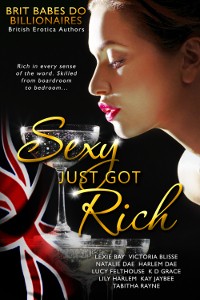 Sexy Just Got Rich Anthology blurb:
Sexy Just Got Rich Anthology blurb:
Billionaires have it all but that doesn’t mean they don’t have to work hard to get what their hearts desire. In this anthology of erotic BDSM stories the Brit Babes offer heroes and heroines who aren’t shy about taking what they want. From farmyards to luxury penthouses, wealth is all about sating needs, connecting souls and taking pleasure to new highs. Whether you’re looking for a coffee break read or something longer to curl up in bed with, you’ll find something to suit your needs in Sexy Just Got Rich.
‘Buying the Farm’ blurb:
Cassie Fielding is at her wits end trying to save the family farm from bankruptcy after her father’s illness. But when Cassie returns from university, she finds that, in spite of their financial situation, her father has hired the mysterious Simon Dennis to help run the place. As Cassie and the new hired hand experience an unprecedented heat wave of lust, Cassie comes to suspect that her father and Simon may be in cahoots with their own plan to save the farm, and the whole scheme depends on her.
Excerpt
When Simon came to her, she was standing with her back to the open sliding door, arms braced against the stalls they had renovated. He wanted to breed horses – not on a grand scale, but mostly as an experiment in the beginning, a part of their plan to diversify. The planning was still in the early stages, but it was filled, like most of their plans for Fielding Farm, with exciting possibilities.
‘I’m sorry, Cassie.’ For a long time he stood silhouetted in the door, his shadow stretching out before him, merging with the gloom of the barn. Then he moved to stand behind her, slipping his arms carefully around her waist, as though he feared she might turn on him. In truth, she wasn’t sure his fears weren’t justified.
At last, she relaxed and leaned her head back against his shoulders, feeling his sigh of relief, warm and humid on the soft flesh of her neck. ‘Is any of what he said true?’
‘Some of it, yes. I wanted to buy Fielding Farm. I made your father a very generous offer, one I didn’t think he could refuse.’
‘But he did.’ Her voice was little more than a whisper.
‘Well, not exactly.’ He kissed her ear and tightened his hold just slightly, not sure what her response would be. ‘He told me he wouldn’t consider any offer until I’d worked as his hired hand for six months.’
Cassie laughed in spite of herself. ‘And then he threw in the farmer’s daughter to sweeten the deal?’
He nuzzled her neck and kissed her just below her ear, sending shivers down her spine, and she pressed back against him. ‘I think he knew all along what would happen. I think he knew that when I got to know the farmer’s daughter, I’d want it all, lock stock and barrel, and buying the farm was gonna cost me way more than I expected to pay.’ One hand moved up to cup her breast and for a long second, he seemed to have lost himself in the soft flesh of her nape and along the top of her shoulder. ‘But Christ,’ he breathed against her throat, ‘it’s worth the price.’
Buy Sexy Just Got Rich Here:
Amazon UK
Amazon US
Amazon AU
Amazon CA
All Romance eBooks
Barnes & Noble
iBooks UK
iBooks US
Kobo
Smashwords
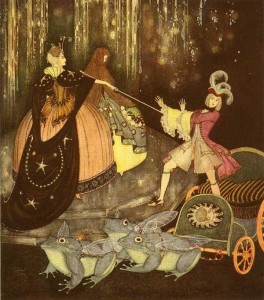 I can’t tell you how excited I am to have the totally awesome Sarah Blake as my guest today. Sarah is a playwright, theatre director and story teller, and founder of
I can’t tell you how excited I am to have the totally awesome Sarah Blake as my guest today. Sarah is a playwright, theatre director and story teller, and founder of 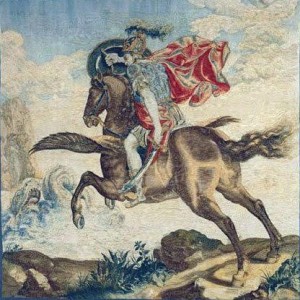 “Some day, my prince will come,
“Some day, my prince will come,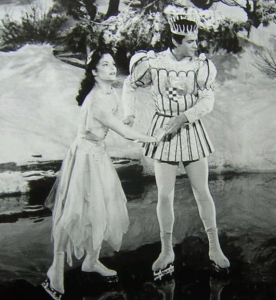 The psychologist Carl Jung theorised that all standard fairy tale characters (or ‘archetypes’) – such as the Prince, the Witch, the Stepmother, etc. – actually represent aspects of our subconscious selves. Viewed in this way, every story can be seen as the reflection of a person – and the interplay and conflict that occurs between the characters within the story mirrors the interplay and conflict that occurs within our own minds, as our subconscious traits and desires vie for dominance. In Jungian terms, the Prince/Hero archetype represents our desire to seek out a better way of life and find greater fulfillment – but practically-speaking, what does this mean?
The psychologist Carl Jung theorised that all standard fairy tale characters (or ‘archetypes’) – such as the Prince, the Witch, the Stepmother, etc. – actually represent aspects of our subconscious selves. Viewed in this way, every story can be seen as the reflection of a person – and the interplay and conflict that occurs between the characters within the story mirrors the interplay and conflict that occurs within our own minds, as our subconscious traits and desires vie for dominance. In Jungian terms, the Prince/Hero archetype represents our desire to seek out a better way of life and find greater fulfillment – but practically-speaking, what does this mean? literally, marrying the Prince (or the closest you could get to one) was your only chance to better your circumstances – both practically, in the material sense of having more wealth and security, but also personally, because society judged your worth by your husband – and all too often, society’s external judgements were (and continue to be) internalised within women’s own minds.
literally, marrying the Prince (or the closest you could get to one) was your only chance to better your circumstances – both practically, in the material sense of having more wealth and security, but also personally, because society judged your worth by your husband – and all too often, society’s external judgements were (and continue to be) internalised within women’s own minds.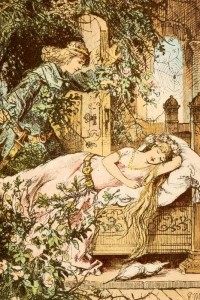 The potency of the Prince as a representation of female desire is particularly heightened when we think of him in terms of romantic/sexual fulfillment. Even now, in our far less repressed age, women are still judged for their sexual appetites. They are frequently condemned as ‘sluts’ or ‘whores’ if they exercise their right to sexual liberty, or express their sensuality on their own terms – whereas similar behaviour in their male counterparts is often approved of by society at large, or merely shrugged off with an indulgent “boys will be boys” attitude. Women’s erotic lives are still all too often parcelled up with being looked at – being seen to be desirable, rather than having the autonomy and freedom to enjoy what feels desirable. So the Prince can also represent a woman’s license to roam freely, explore extensively and and enjoy (without fear of judgement) any and every erotic fantasy she can conjure. As long as an imbalance of power continues to exist between men and women, the Prince will always be there, representing a woman’s yearning for empowerment.
The potency of the Prince as a representation of female desire is particularly heightened when we think of him in terms of romantic/sexual fulfillment. Even now, in our far less repressed age, women are still judged for their sexual appetites. They are frequently condemned as ‘sluts’ or ‘whores’ if they exercise their right to sexual liberty, or express their sensuality on their own terms – whereas similar behaviour in their male counterparts is often approved of by society at large, or merely shrugged off with an indulgent “boys will be boys” attitude. Women’s erotic lives are still all too often parcelled up with being looked at – being seen to be desirable, rather than having the autonomy and freedom to enjoy what feels desirable. So the Prince can also represent a woman’s license to roam freely, explore extensively and and enjoy (without fear of judgement) any and every erotic fantasy she can conjure. As long as an imbalance of power continues to exist between men and women, the Prince will always be there, representing a woman’s yearning for empowerment.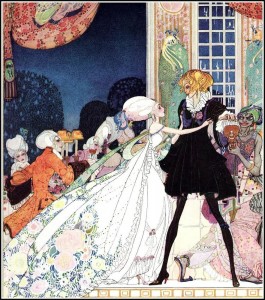 film, or within the pages of a romantic novel – what they are actually sighing for is autonomy and self-fulfillment. It might be sexual fulfillment, or intellectual, or economic, or social, or spiritual – or all of the above. The specific details of the desire don’t matter, so much as the desire itself. Whatever a woman yearns for, or feels is lacking in her life – freedom, self-knowledge, self-esteem, romance, adventure, recognition, a sense of connection – is what the Prince is there to provide. Historically, that has always been his role. And psychologically – while we continue to live within a patriarchal society – it remains so.
film, or within the pages of a romantic novel – what they are actually sighing for is autonomy and self-fulfillment. It might be sexual fulfillment, or intellectual, or economic, or social, or spiritual – or all of the above. The specific details of the desire don’t matter, so much as the desire itself. Whatever a woman yearns for, or feels is lacking in her life – freedom, self-knowledge, self-esteem, romance, adventure, recognition, a sense of connection – is what the Prince is there to provide. Historically, that has always been his role. And psychologically – while we continue to live within a patriarchal society – it remains so.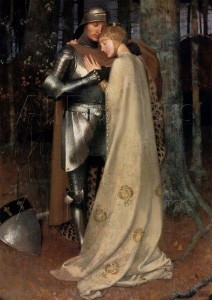 expectations can place you in a trap, because the Prince was never meant to be real. He is an internal figure – an aspect of your own psyche – and finding your happy ending has as much to do with discovering and developing his characteristics within your own personality, as it has with finding another person to love. For far too long, women have been raised and encouraged by popular culture to view the Prince as a real, flesh-and-blood alpha male, who will swoop in and rescue them from all their troubles and worries. This is not only patronising to women, it is also extremely hard on men – after all, why should one flawed, fragile human be made to carry the full burden of another’s every hope and expectation?
expectations can place you in a trap, because the Prince was never meant to be real. He is an internal figure – an aspect of your own psyche – and finding your happy ending has as much to do with discovering and developing his characteristics within your own personality, as it has with finding another person to love. For far too long, women have been raised and encouraged by popular culture to view the Prince as a real, flesh-and-blood alpha male, who will swoop in and rescue them from all their troubles and worries. This is not only patronising to women, it is also extremely hard on men – after all, why should one flawed, fragile human be made to carry the full burden of another’s every hope and expectation?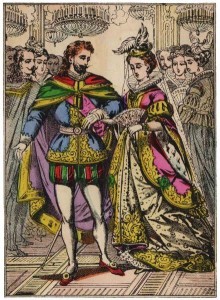
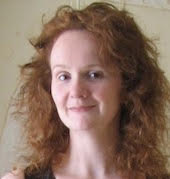

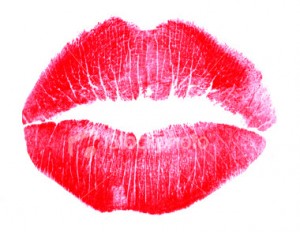 One theory is that kissing evolved from the act of mothers premasticating food for their infants, back in the pre-baby food days, and then literally kissing it into their mouths. Birds still do that. The sharing of food mouth to mouth is also a courtship ritual, and birds aren’t the only critters who do that. Even with no food involved the tasting, touching and sniffing of mouths of possible mates, or even as an act of
One theory is that kissing evolved from the act of mothers premasticating food for their infants, back in the pre-baby food days, and then literally kissing it into their mouths. Birds still do that. The sharing of food mouth to mouth is also a courtship ritual, and birds aren’t the only critters who do that. Even with no food involved the tasting, touching and sniffing of mouths of possible mates, or even as an act of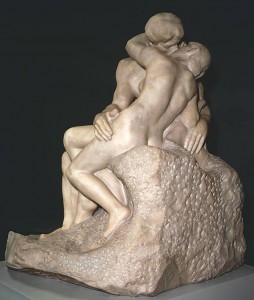
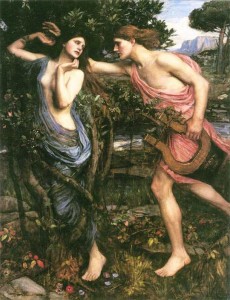 just how much fun it is to write the baddies. In The Flesh is based on a very creepy short story I wrote a long time ago, a short story whose baddie didn’t even have a name. His lover thought he might actually be god! The idea of having a god for a lover, having a lover who is more than human and at the same time way less than human, who like the gods of mythology, considers himself above human law and ethics, never stops intriguing me. I revisited the idea in the
just how much fun it is to write the baddies. In The Flesh is based on a very creepy short story I wrote a long time ago, a short story whose baddie didn’t even have a name. His lover thought he might actually be god! The idea of having a god for a lover, having a lover who is more than human and at the same time way less than human, who like the gods of mythology, considers himself above human law and ethics, never stops intriguing me. I revisited the idea in the 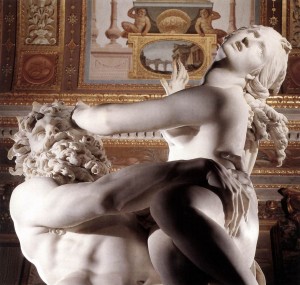 I think the baddie has to do more than just make the hero shine. He also has to hold up the mirror that reflects back the hero’s own dark side. He has to elicit more than hate from the reader and the other characters. I think for a baddie to really make a plot sing, he has to elicit our own dark lusts and our own voyeuristic walk on the wild side. The baddie attracts us because he’s brave enough, bold enough, not to
I think the baddie has to do more than just make the hero shine. He also has to hold up the mirror that reflects back the hero’s own dark side. He has to elicit more than hate from the reader and the other characters. I think for a baddie to really make a plot sing, he has to elicit our own dark lusts and our own voyeuristic walk on the wild side. The baddie attracts us because he’s brave enough, bold enough, not to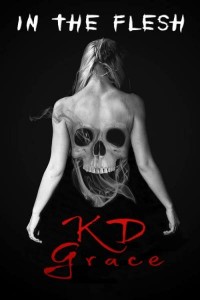 to spark against, the baddie is there to help the reader get a better picture of who the hero and heroine are. And the baddie is the knife and chisel that sculpts the hero and heroine into something better, something stronger.
to spark against, the baddie is there to help the reader get a better picture of who the hero and heroine are. And the baddie is the knife and chisel that sculpts the hero and heroine into something better, something stronger.
